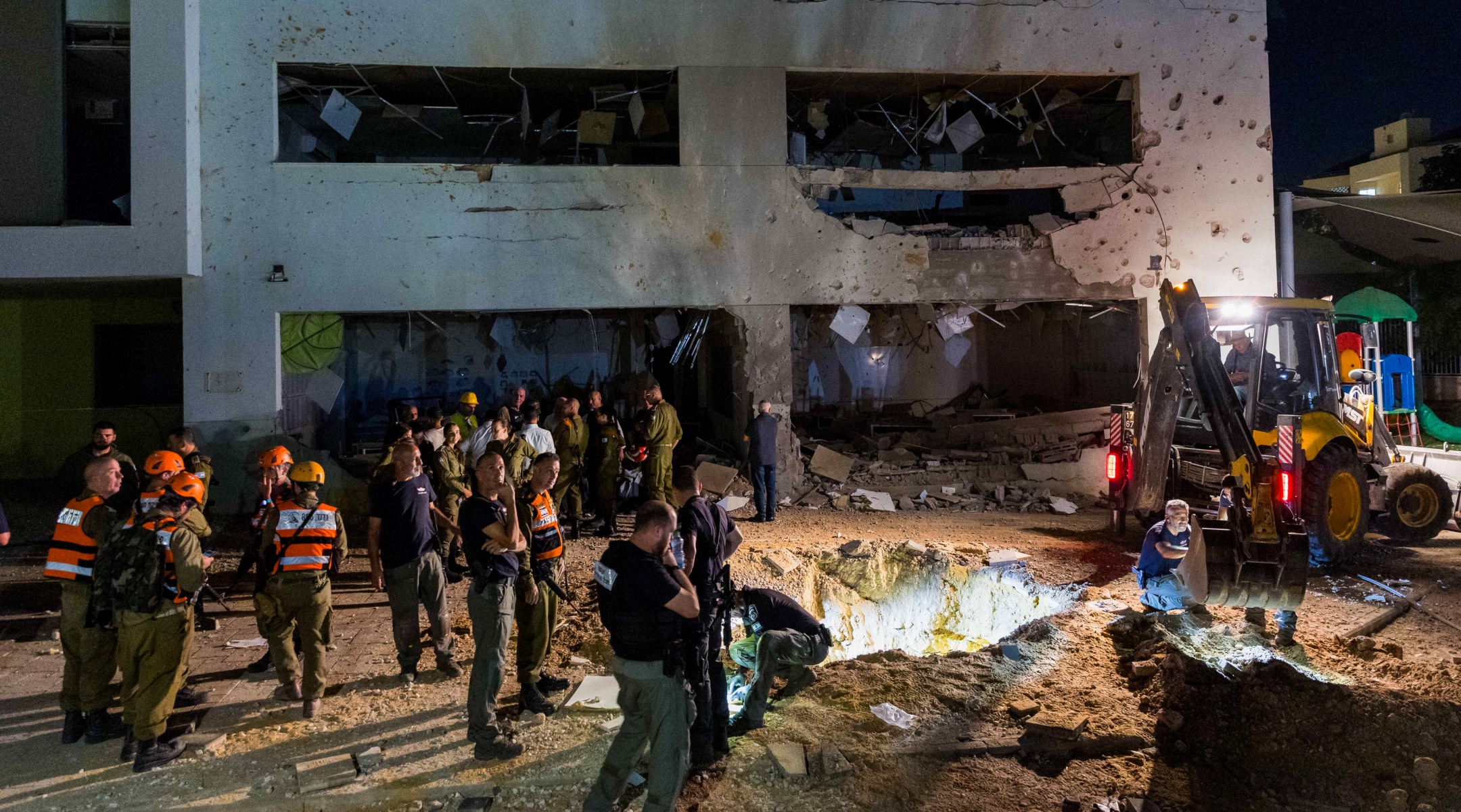WASHINGTON — Israel said it hit military targets in Iran in retaliation for that country’s missile barrage on Oct. 1, apparently heeding Biden administration pleas to avoid oil fields or Iran’s nuclear program because of fears of escalation into an all-out war.
“In response to months of continuous attacks from the regime in Iran against the State of Israel – right now the Israel Defense Forces is conducting precise strikes on military targets in Iran,” Rear Adm. Daniel Hagari, the Israeli army spokesman, said in a video statement released to reporters Saturday before dawn as the strikes took place.
President Joe Biden and his officials had said they understand and support Israel’s stated plans to hit back for the Oct. 1 attack, but asked Israel to avoid oil fields and Iran’s nuclear weapons program to prevent an escalation that could lead to all out war.
“If I were in their shoes, I’d be thinking about other alternatives than striking oil fields,” Biden said at a White House press conference on Oct. 4 after he had consulted with Israeli Prime Minister Benjamin Netanyahu.
An Israeli source familiar with the attack told the Jewish Telegraphic Agency that Israel had informed U.S. officials ahead of time of the attack. Americans appeared ready for any possible escalation. On Friday, U.S. Central Command, which covers the Middle East, posted its social media photos of F-16 combat aircraft landing at Spangdahlem Air Base in Germany.
“U.S. Air Force F-16s from the 480th Fighter Squadron based at Spangdahlem Air Base, Germany arrive in the U.S. Central Command area of responsibility,” said the caption.
John Kirby, the National Security Council spokesman, would not earlier Friday directly confirm that the F-16s were relayed to CENTCOM’s region assist Israel, but suggested that was the case.
“Our commitment to Israel’s security remains ironclad, and that means, as appropriate, making force posture changes that we think need to be made to help Israel defend itself, and I don’t think I can really go beyond that,” he said, responding to a question about the positioning of the F-16s.
Hagari said Israel was ready for any further actions.
“Our defensive and offensive capabilities are fully mobilized,” he said. “We will do whatever necessary to defend the State of Israel and the people of Israel.”
Hamas, an Iran-backed terrorist group, launched the current war on Oct. 7. 2023 with massacres inside Israel and was joined within a day by Hezbollah, a Lebanon-based terrorist group also backed by Iran. Iranian proxies elsewhere, including in Yemen, have similarly attacked Israeli and U.S. interests in what Israeli officials have come to call a seven-front war. Iran has launched two missile barrages, the first in April and then on Oct. 1.
“The regime in Iran and its proxies in the region have been relentlessly attacking Israel since October 7th – on seven fronts – including direct attacks from Iranian soil,” Hagari said. “Like every other sovereign country in the world, the State of Israel has the right and the duty to respond.”
Reports said Israel hit Iran-affiliated targets in Syria as well as Iran.
Israel’s retaliation comes a week and a half before the U.S. election. A conflagration in the region would likely upend what is a neck and neck race between Vice President Kamala Harris and her rival, former President Donald Trump. Harris has said that all options are on the table to keep Iran from going nuclear, intimating that U.S. involvement may become necessary.
In addition to his discussions with Biden, Netanyahu has communicated with Trump, who has attacked Biden for warning Israel away from nuclear targets.
“Do what you have to do,” Trump told Netanyahu in one of the phone calls, The Washington Post quoted anonymous sources as saying.
Support the Jewish Telegraphic Agency
Help ensure Jewish news remains accessible to all. Your donation to the Jewish Telegraphic Agency powers the trusted journalism that has connected Jewish communities worldwide for more than 100 years. With your help, (JEWISH REVIEW) can continue to deliver vital news and insights. Donate today.




